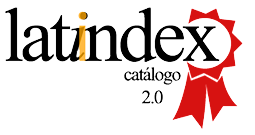Design of a multiple choice test development course using generative artificial intelligence
Keywords:
course, teachers, generative artificial intelligence, tests, multiple choiceAbstract
Currently, there are several instruments that allow to generate an evaluation of student learning, among them, multiple choice tests stand out. At the same time, generative artificial intelligence has become a powerful tool that contributes significantly to andragogical processes. Therefore, the objective of this research was to design a course for university teachers on the elaboration of multiple-choice tests using generative artificial intelligence. This study was developed under a qualitative approach, based on an action-research design, using voluntary participant sampling in which 7 teachers belonging to a degree program in the health area of a private university participated; on the other hand, an interview guide and a template designed by the author were used as data collection instruments. As results, it was possible to corroborate that most of the teachers know how to design and apply multiple-choice tests, however, all of them had a low level of knowledge regarding generative artificial intelligence. In addition, with the results obtained, a pilot test of the course was designed and carried out. In conclusion, it was corroborated that the multiple-choice tests designed by the teachers themselves present incongruence between the topic or objective and the questions developed, in addition, there is confusion in the scope of the terms artificial intelligence and generative artificial intelligence, aspects corrected in the pilot test developed.
Downloads
References
Alpizar Garrido, L. O., & Martínez Ruiz, H. (2024). Perspectiva de estudiantes de nivel medio superior respecto al uso de la inteligencia artificial generativa en su aprendizaje. RIDE Revista Iberoamericana para la Investigación Y El Desarrollo Educativo, 14(28), 1-29. doi: https://doi.org/10.23913/ride.v14i28.1830 Arias Gonzáles, J. L. (2021). Guía para elaborar la operacionalización de variables. Espacio I+D: Innovación más Desarrollo, https://doi.org/10.31644/IMASD.28.2021.a02
Arias González, J. L. (2020). Técnicas e instrumentos de investigación científica. Arequipa Perú: Enfoques Consulting EIRL. Arocena, R., Gascue, C., & Leymonié, J. (2010). Evaluación y validación de pruebas parciales de opción múltiple de un curso universitario de primer año. Revista Electrónica de Enseñanza de las Ciencias Vol. 9, Nº3, 737-756. Obtenido de https://www.academia.edu/download/78643737/Evaluacin_y_validacin_de_pruebas_parcial2 0220113-16739-i1fff3.pdf Barragán, J., Aquino, A., Enrique, J., Segura, F., Martínez, M., & Andújar, J. (2024). Evaluación de la inteligencia artificial generativa en el contexto de la automática: un análisis crítico. Jornadas cea.2024.45.10733 de Automática, 45, 1-5. doi: https://doi.org/10.17979/ja Bennasar García, M. I., & Estrada, J. M. (2021). La evaluación de los aprendizajes, en la dicotomía educativa presencial-virtual. Revista de Investigación en Ciencias de la Educación, Volumen 5 / No. https://doi.org/10.33996/revistahorizontes.v5i18.186 18, 434 - 446. doi: Dominguez, A., Barniol, P., & Zavala, G. (2019). Evaluación del Entendimiento Gráfico de Derivada e Integral Definida mediante un Examen en Castellano de Opción Múltiple. Formación Universitaria Vol. 12 Nº 6, 41-56. doi: http://dx.doi.org/10.4067/S0718 50062019000600041 Espinoza Freire, E. (2022). La evaluación de los aprendizajes. Conrado vol.18 no. 85, 120-127. Obtenido de 86442022000200120&script=sci_arttext&tlng=pt http://scielo.sld.cu/scielo.php?pid=S1990 Facultad de Educación PUCP. (marzo de 2022). Pontificia Universidad Católica del Perú. Obtenido de https://repositorio.pucp.edu.pe/index/handle/123456789/184559 Franganillo, J. (2023). La inteligencia artificial generativa y su impacto en la creación de contenidos mediáticos. Methaodos. Revista de ciencias sociales, 11(2), 1-17. Obtenido de https://dialnet.unirioja.es/descarga/articulo/9132067.pdf Hamodi, C., López Pastor, V. M., & López Pastor, A. T. (2015). Medios, técnicas e instrumentos de evaluación formativa y compartida del aprendizaje en educación superior. Perfiles educativos vol.37 no.147, 146-161. https://www.scielo.org.mx/scielo.php?script=sci_arttext&pid=S0185 26982015000100009&lng=es&nrm=iso&tlng=es
Hernández-Sampieri, R., & Mendoza Torres, C. P. (2018). Metodología de la Investigación: Las rutas cuantitativa, cualittiva y mixta. México: McGraw Hill Education. Hincapié Parejo, N. F., & Clemenza de Araujo, C. (2022). Evaluación de los aprendizajes por competencias: Una mirada teórica desde el contexto colombiano. Revista de Ciencias Sociales (Ve), XXVIII (1), 106-122. https://dialnet.unirioja.es/servlet/articulo?codigo=8297213 Obtenido de Instituto Nacional de Estadística y Censo. Contraloría General de la República de Panamá. (2021). Obtenido de https://www.inec.gob.pa/publicaciones/Default3.aspx?ID_PUBLICACION=1181&ID_CATEGO RIA=6&ID_SUBCATEGORIA=41 Larico Hanco, R. (2024). Impacto de la inteligencia artificial generativa CHATGPT en la enseñanza universitaria. Chakiñan, Revista De Ciencias Sociales Y Humanidades, 1-18. Obtenido de https://chakinan.unach.edu.ec/index.php/chakinan/article/view/1149 Llorens Largo, F., Vidal, J., & García Peñalvo, F. J. (2023). Ya llegó, ya está aquí, y nadie puede esconderse: La inteligencia artificial generativa en educación. Revistas Científicas de Educación en Red, 1-7. Obtenido de https://www.researchgate.net/profile/Francisco-Garcia Penalvo/publication/376457963_Ya_llego_ya_esta_aqui_y_nadie_puede_esconderse_La_inte ligencia_artificial_generativa_en_educacion/links/6579a09e6610947889c4eb9d/Ya-llego-ya esta-aqui-y-nadie-puede-escond Mendieta Izquierdo, G. (2015). Informantes y muestreo en investigación cualitativa. Investigaciones Andina, vol. 17, núm. http://www.redalyc.org/articulo.oa?id=239035878001 30, 1148-1150. Obtenido de Nizama Valladolid, M., & Nizama Chávez, L. M. (2020). El enfoque cualitativo en la investigación jurídica, proyecto de investigación cualitativa y seminario de tesis. VOX JURIS (38) 2, 69-90. doi: https://doi.org/10.24265/voxjuris Sánchez Mendiola, M., & Carbajal Degante, E. (2023). La inteligencia artificial generativa y la educación universitaria. Perfiles Educativos, vol. X LV, número especial, 70-86. doi: https://doi.org/10.22201/iisue.24486167e.2023.Especial.61692 Schwartzman, G., Roni, C., Berk, M., Delorenzi, E., Sánchez, M., & Eder, M. L. (2021). Evaluación Remota de Aprendizajes en la Universidad: decisiones docentes para encarar un nuevo desafío. Revista Iberoamericana de Educación a Distancia, vol. 24, núm. 2, 67-80. doi: https://doi.org/10.5944/ried.24.2.29078
Ulloa Siles, J. C. (2023). Summative Assessment of Learning in the educational training process received by students with significant curricular adaptations in the First and Second cycles of General Basic Education at Las Gravilias School, Alajuela Province, Costa Rica, 2021. Journal of Microbiology & Health Education,Vol. 5. No. 3, 511-515. Obtenido de http://journalmhe.org/ojs3/index.php/jmhe/article/view/79/121 Useche, M. C., Artigas, W., Queipo, B., & Perozo, É. (2019). Técnicas e instrumentos de recolección de datos cuali-cuantitativos. Colombia: Universidad de La Guajira. Vallejo López, A. B. (2020). El papel del docente universitario en la formación de estudiantes investigadores desde la etapa inicial. Educación Médica Superior, vol.34 no.2, 1-20. Obtenido 21412020000200017&script=sci_arttext de http://scielo.sld.cu/scielo.php?pid=S0864 Vera, F. (2023). Integración de la Inteligencia Artificial en laEducación superior: Desafíos y oportunidades. Revista Electrónica Transformar, Volumen 4, Nº 1, 17-34. Obtenido de https://www.revistatransformar.cl/index.php/transformar/article/view/84/44
Downloads
Published
How to Cite
Issue
Section
License

This work is licensed under a Creative Commons Attribution-NonCommercial-ShareAlike 4.0 International License.







